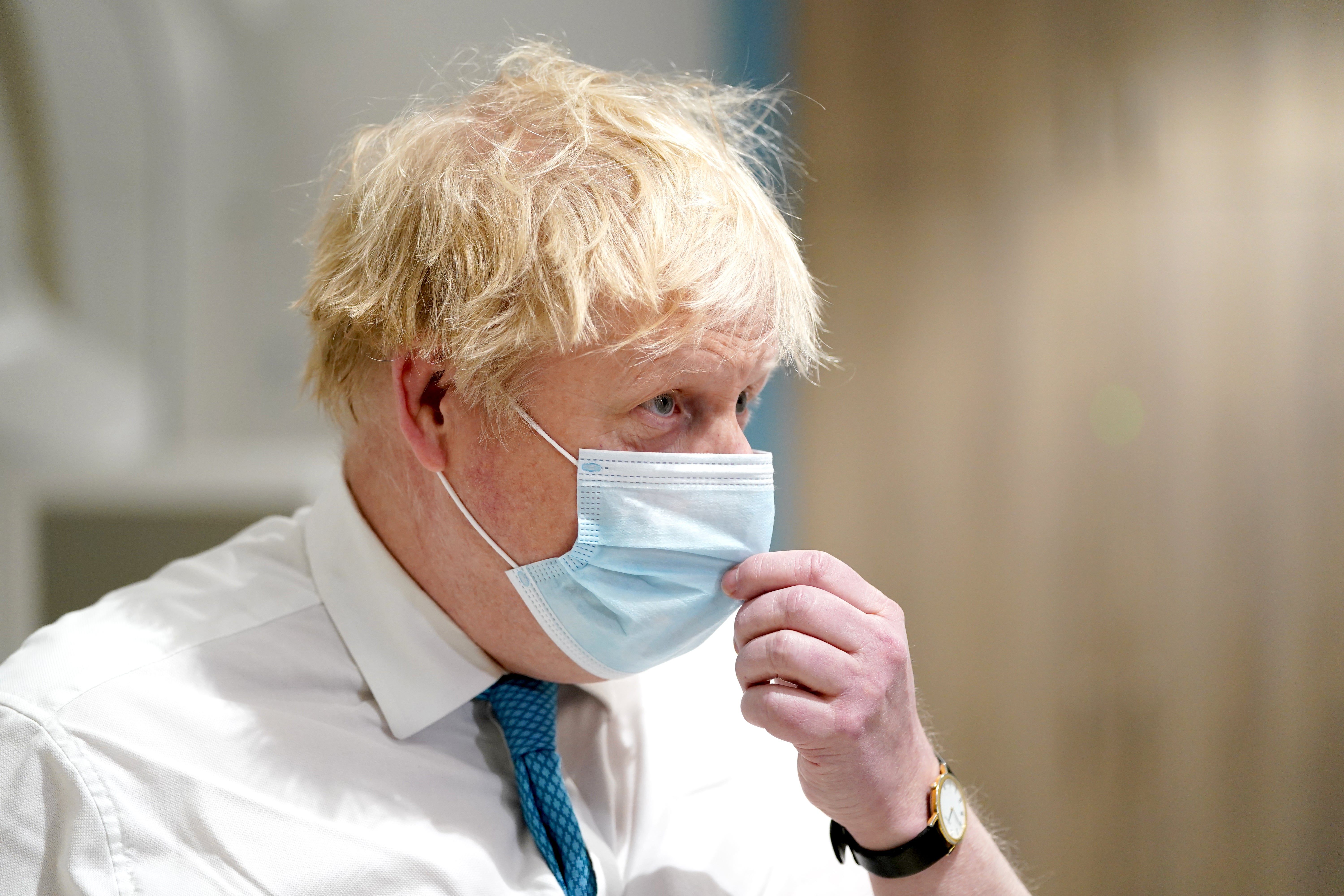Patients will lose out as ministers toy with targets the NHS can’t meet
The NHS is unlikely to be able to meet any new waiting time targets, as Rebecca Thomas explains


Boris Johnson yesterday said the government was setting “tough targets” for dealing with the NHS backlog in England amid frustration at delays in the publication of its Covid recovery plan.
On a visit to the Kent Oncology Centre in Maidstone, Kent, he pledged that no patient will have to wait more than two months for a cancer diagnosis from March 2023.
“We’re now working with the NHS to set some tough targets so that we are able to deliver for patients and also for the taxpayer,” he said.
But ministers have still not released the full national recovery plan for dealing with the backlog in hospital waiting lists which many had expected.
NHS leaders, such as Matthew Taylor, chief executive of the NHS Confederation which represents hospitals, have said it is “frustrating” and warned against any attempt to impose “unrealistic” targets on the health service.
Meanwhile, NHS leaders and doctors union the British Medical Association have warned patients will lose out over the continued delays.
Saffron Cordery, deputy chief for NHS Providers, said: “Trusts are committed to doing everything they can to bear down on care backlogs across all services but we need to have the staff in place to achieve that.
“Ramping up our response to cancer will require more trained staff however. Workforce shortages and the resulting unsustainable workloads on existing staff, are the biggest challenges facing trusts right now. We need national action to tackle this now.”
What Mr Johnson announced is no different to current “faster cancer diagnosis” target that says 75 per cent of patients should be told whether they have cancer within four weeks. In November, 71 per cent of patients were diagnosed to this standard.
The PM said: “We want the vast majority of people who think they may have cancer to have a diagnosis... confirming that they do or that they don’t have cancer within 28 days. So we want three in four to have that.
“And we’re also saying that by March of 2023, by spring next year, we want nobody to be waiting more than two months. Those are very tough targets, we’ve got to make sure that the NHS delivers them.”
If the PM meant 100 per cent of patients will treated within two months, rather than diagnosed, than this could be a toughening of the current target of 85 per cent.
However if we meant clearing the backlog of two month waiters, this was already a target for March 2022 which the NHS has already admitted it will miss.
Figures for 2021 show 25 per cent of those on waiting list were left waiting over six weeks for a diagnosis in November last year compared to 27 per cent in 2020.
The percentage of patients being treated within two months for cancer following an urgent referral, which should be at 85 per cent, dropped to a new low of 67.5 per cent.
Meanwhile, the number of patients waiting for more than two years for other care has continued to increase despite NHS targets to eliminate these waits by next month.
Put simply, the NHS is unlikely to have a chance of meeting any new “tough” waiting time targets.
Commons Health and Social Committee chair, MP Jeremy Hunt, warned the government that it should be discussing how it is to find the 4,000 additional doctors to address the backlog rather than setting targets which “are the last thing the NHS needs”.
While the government fights over NHS targets, it is the patients who will bear the brunt, NHS Assembly chair Chris Ham said. “When the NHS gets caught in the crossfire of government – as with the delay of the elective recovery plan – patients are the ones who suffer,” he said.
British Medical Association chair Dr Chaand Nagpaul warned: “Six million people are waiting anxiously for care, 307,000 of whom have been waiting longer than a year. Many of these will be suffering in pain and there’s a real risk that their conditions will worsen with further delays.
“The government has a moral duty to these patients to urgently lay out exactly how it plans to address this record backlog and ensure they get the treatment they need.”
“The government has been promising this plan for months now, and while the arrival of Omicron may have delayed this, healthcare staff now urgently need to know how leaders expect them to tackle the backlog in the months and years ahead, and crucially, provide resources to help them do this.”
In a letter to ministers, shadow health secretary Wes Streeting urged the government not to allow the recovery plan to become “another cancelled operation”, writing: “Whatever the internal arguments within the Conservative Party, you cannot play political games with the NHS while millions of people wait for care.
“If you allow your party’s chaos and incompetence to paralyse the government, it will be NHS patients who pay the price.”






Join our commenting forum
Join thought-provoking conversations, follow other Independent readers and see their replies
Comments